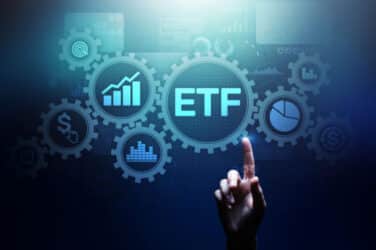
CME Group, the US derivatives exchange, has launched an online tool to allow investors to compare the costs of futures against exchange-traded funds, as some ETF issuers have claimed the funds are now cheaper to use.
Last month the CME launched the Total Cost Analysis tool to allow investors to compare the all-in costs of replicating the S&P 500 by trading equity index futures versus ETFs, and intends to expand the tool to other indexes.
Tim McCourt, global head of equity products at CME Group, told Markets Media: “The online tool gives customers the flexibility to compare costs for specific variables such as commissions, trade size and time period.”
The tool focuses on three different components of the total cost of trading – transaction costs, implementation costs and holding costs. McCourt claimed that for an active trader on a short time horizon, futures are overwhelmingly cheaper on a total cost of trading basis, which includes both fees and market impact but in certain circumstances, over different time periods, this could change.
Source, the European ETF issuer, had issued a paper in April, “ETFs vs Futures”, which said futures have become more expensive due to bank regulation while ETFs have become cheaper due to increased competition. The paper said that futures costs have been cheaper recently, this is expected to change. “We expect that, as volatility reduces, the usual imbalance between buyers and sellers in the futures markets will resume and futures costs will return to the levels we saw between 2013 and 2015,” said the report.
In addition Source said futures are particularly expensive relative to ETFs at the December roll as banks have less risk appetite at the financial year-end. “For investors planning to hold an exposure over the December-March period, it may make sense to buy ETFs instead of futures,” added Source.
Jürgen Blumberg, head of European capital markets had told Markets Media last month that 41% of futures investors are looking at ETFs and expect some to switch in the fourth quarter.
Nicholas Colas, chief market strategist at Convergex, a global brokerage company based in New York, said in a report today that during the first half of this year investors were net sellers of equities in the US ETF market. He added: “Now, they have plunked in some $23bn of net new money in just the first three weeks of Q3 2016. All of it – and then some – has gone (on a net basis) to two destinations: US stocks ($21bn) and emerging markets equities ($5bn).”
In Europe Detlef Glow, head of research for Europe, Middle East and Africa at Lipper, the fund researcher said in a report today that exchange-traded funds enjoyed net inflows in June, the opposite to the overall fund industry in the region.
Net sales contributed €3.3bn to the overall growth in assets under management in the European ETF segment last month but overall assets under management fell €1.9bn from the previous month to €453.6bn due to the performance of the underlying markets.
Glow said: “Taking the flows in the overall European fund industry and the market conditions during June into account, it was somewhat surprising that ETFs enjoyed net inflows.”
Equity ETFs enjoyed the highest net inflows for the month of €1.6bn followed by bond ETFs with €1.1bn. Flows for June drove the overall net inflows into the European ETF segment to €13.1bn for the year to date added Glow.
Last month BlackRock’s iShares, with net sales of €1.5bn, maintained its position as the best-selling ETF promoter in Europe, followed by Vanguard with €0.7bn and Societe Generale’s Lyxor ETF with €0.6bn according to Lipper.
More on ETFs:





